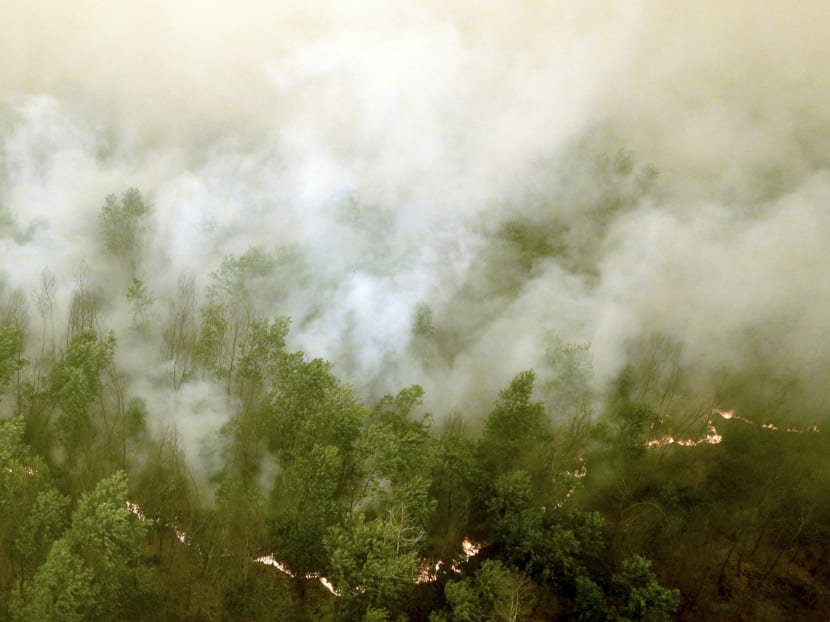Indonesia may take up to a decade to curb annual land fires
SINGAPORE — Indonesia may take as long as a decade to permanently curb the plantation land-burning that sends choking smog across swathes of Southeast Asia each year, according to a research fellow at Nanyang Technological University.

Thick smoke rises as a fire burns in a forest at Ogan Komering Ilir Regency, Indonesia's South Sumatra province Oct 20, 2015. Photo: Reuters
SINGAPORE — Indonesia may take as long as a decade to permanently curb the plantation land-burning that sends choking smog across swathes of Southeast Asia each year, according to a research fellow at Nanyang Technological University.
Although Indonesia has ratified a regional agreement committing it to act to reduce the smoke “haze” caused by the land fires, the law has yet to enacted locally in its districts, said Mr Jonatan Anderias Lassa, a research fellow at the Centre for Non-Traditional Security Studies at the Singapore university.
“They need to bring down that law into local legislative processes,” Mr Lassa told reporters in Singapore on Monday, adding that a division of resources between central and local governments was also required. “It hasn’t been done, and it takes five to 10 years to do that.”
Exacerbated by dry conditions from the El Nino weather phenomenon, this year’shaze is among the worst on record. Stinging smoke from the illegal burning to clear land for palm oil and paper plantations have blanketed Singapore, parts of Indonesia, Malaysia and Thailand for over a month. Besides prompting school closures and disrupting sea and air travel in the region, the smog has also forced some in Indonesia to flee their homes.
Mr Lassa estimates that an initial investment of US$10 million (S$13.9 million) to US$20 million could help the Indonesian government kick start the enactment of locally relevant legislation in the 211 affected districts on the islands of Sumatra and Kalimantan.
The three-hourly air pollution index in Singapore was 136 at 6am local time. Readings exceeding 100 are classified as “unhealthy,” as the government advises people to reduce prolonged outdoor activities.
Singapore’sthe National Environment Agency said it detected at least 11 so-called hotspots in Sumatra and 84 in Kalimantan on Monday. “Moderate to dense haze is still persisting in parts of central and southern Sumatra and Kalimantan,” it said. BLOOMBERG






